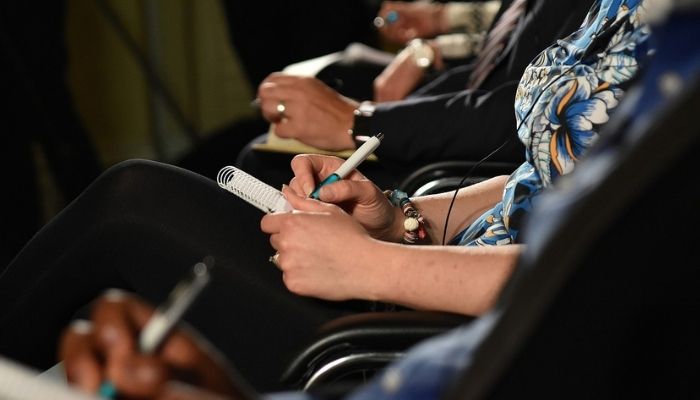POSH FAQ: What Happens When Someone Files A False Sexual Harassment Complaint?

Written by: Sheena Verma
The Sexual Harassment of Women at Workplace (Prevention, Prohibition and Redressal) Act also known as the POSH Act came into effect eight years ago and has since provided a framework that public and private organisations must comply with to prevent and address sexual harassment at the workplace. In this article, you will find the answer to what happens if someone files a false sexual harassment complaint with the Internal Complaints Committee at a workplace.
What’s A False Complaint And Who Gets Punished?
To prevent the inadvertent misuse of the POSH Act, Section 14 penalises any complainant who files a false and malicious complaint. It also penalises any other person who conspires with the complainant and submits false/misleading evidence or documents. The following circumstances may warrant the application of Section 14:
1. Allegation against the respondent is malicious.
2. The complainant has made the complaint knowing it was false.
3. The complainant has produced any forged or misleading documents.
What’s The Prescribed Punishment?
The punishment for a false complaint has been provided for in Section 14 read with Rules 9 and 10 of the POSH Rules, 2013. If any of the above-mentioned circumstances are proved, the Internal Complaints Committee (‘ICC’)/ Local Complaints Committee (‘LCC’) may recommend to the employer/district officer to take action against the complainant.
Such action can either be in accordance with the service rules applicable to the complainant, or as provided under Rule 9, which includes a written apology, warning, reprimand or censure, withholding of promotion, withholding of pay rise or increments, termination from service, undergoing a counseling session, or carrying out community service.
When Is A Complaint Categorised As False?
Section 14 clearly distinguishes that a complaint that cannot be substantiated or proved in its entirety would not be classified as a false complaint. The Act differentiates between filing a false accusation with a mala fide intent and lodging a complaint lacking adequate proof. Therefore, a mere inability to substantiate a complaint would not attract punishment under the said section.
In Dr Susmita Banerjee v. Kolkata Port Trust & Ors (2017 SCC OnLine Cal 18079), the petitioner was the sole eye-witness to an incident of sexual harassment at her workplace and was accused of giving a false deposition during the inquiry. However, the Calcutta High Court adjudged that since there was no foundational basis for the said allegation, all proceedings initiated against the petitioner u/s 14 were to be quashed. This tells us that there has to be substantive proof of malice when establishing guilt under section 14.
 When the complainant files a complaint only to “settle a personal score”, they can be held liable under section 14. This was reiterated by the Madras High Court in Union of India v. Reema Srinivasan Iyengar (WP Nos. 10689, 24290 and 4339 of 2019), wherein the complainant did not attend the proceedings of the ICC, and had also changed the nature of her complaint from a generic one to an allegation of sexual harassment. The conduct of the complainant led to the conclusion that her intent was to settle a personal score with the alleged perpetrator.
When the complainant files a complaint only to “settle a personal score”, they can be held liable under section 14. This was reiterated by the Madras High Court in Union of India v. Reema Srinivasan Iyengar (WP Nos. 10689, 24290 and 4339 of 2019), wherein the complainant did not attend the proceedings of the ICC, and had also changed the nature of her complaint from a generic one to an allegation of sexual harassment. The conduct of the complainant led to the conclusion that her intent was to settle a personal score with the alleged perpetrator.
What Happens When There’s No Eye-Witness?
In Ms (X) v Union of India, 2020 SCC OnLine Del 1618, the respondent accused the petitioner of filing a false complaint solely because her colleagues, who were allegedly present at the time of harassment, did not corroborate her statement. However, a Division Bench of the Delhi High Court set aside the penalty of INR 50,000 imposed on her by a Single Judge who held her guilty under Section 14.
The Bench observed that the role of the ICC is not to “doubt the veracity” of the complaint as it is, in fact, the first point of contact for the woman.
The judgement emphasised on the fact that the ICC should be sympathetic instead of being suspicious even before they begin to assess the case. Therefore, the absence of an eyewitness does not dilute the credibility of the complainant. The woman/complainant’s statement has to be seen independently.
About the author: Sheena Verma is a third-year student at National Law School, Punjab with an interest in gender laws and competition law.
Hear, Here: If you haven’t started on POSH compliance procedures, do so today. Ungender will be able to not only guide you through the process of POSH compliance, they will help you set up the ICC, find an external member, train both your IC and workforce, and more. If you’d like to understand how this will work, just give us a call at +91 9582630056.
Ungender Insights is the product of our learning from advisory work at Ungender. Our team specializes in advising workplaces on workplace diversity and inclusion. Write to us at contact@ungender.in to understand how we can partner with your organization to build a more inclusive workplace.
Read our insights about diversity, legal updates and industry knowledge on workplace inclusion at Ungender Insights. Visit our Blog.
Sign up to stay up-to-date with our free e-mail newsletter.
The above insights are a product of our learning from our advisory work at Ungender. Our Team specialises in advising workplaces on gender centric laws.
or email us at contact@ungender.in




